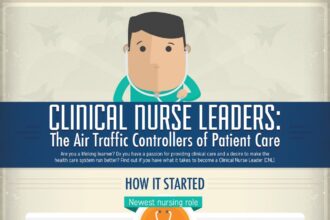 I can’t think of any strategic initiative in recent time with more potential to engage and active patients, improve patient health outcomes and enhance patient experiences than the call by the Institute of Medicine in Crossing the Quality Chasm for providers to become more patient-centered. Specifically, more patient-centered in the way they communicate with patients.
I can’t think of any strategic initiative in recent time with more potential to engage and active patients, improve patient health outcomes and enhance patient experiences than the call by the Institute of Medicine in Crossing the Quality Chasm for providers to become more patient-centered. Specifically, more patient-centered in the way they communicate with patients.
 I can’t think of any strategic initiative in recent time with more potential to engage and active patients, improve patient health outcomes and enhance patient experiences than the call by the Institute of Medicine in Crossing the Quality Chasm for providers to become more patient-centered. Specifically, more patient-centered in the way they communicate with patients.
I can’t think of any strategic initiative in recent time with more potential to engage and active patients, improve patient health outcomes and enhance patient experiences than the call by the Institute of Medicine in Crossing the Quality Chasm for providers to become more patient-centered. Specifically, more patient-centered in the way they communicate with patients.
Having spent years working in the field, I am continually amazed at the rich body of evidence documenting the wide range of strategic benefits of engaging patients in conversations about their health goals, beliefs, motivations and expectations. I am also amazed at how slow health plans, hospitals systems and the like have been to leverage the benefits of patient-centered communications within their provider networks.
A 2011 article in BMJ’s journal Quality and Safety highlight the present state of affairs with respect to patient-centered communications in the U.S.
The study looked at how often physicians employed the most essential and defining patient-centered communication skill – asking patients about what they expected from their health encounter. In the case of the study, asking patients what they expected from a required hospital stay…although the finding could just as easily come from a study of physician office visits.
Why Is Understanding The Patient’s Expectations Important?
The basic premise of patient-centered care is that, where practicable, the clinician should honor the patient’s beliefs, motivations fears and expectations in the course of treating them. Obviously before you can “honor” the patient’s “perspective” you first need to understand what they are. The clinician needs to ask the patient.
And there’s the rub.
Turns out that only 16% of physicians in the study (residents and attending physicians) admitted to routinely asking their patients about their health care-related expectations.
Research has shown that patients typically bring a set of expectations to health encounters. Some of these expectations may be explicitly verbalized by the patient by many are not. They have to be solicited by the clinician. Absent asking the patient, studies show that clinicians tend to underestimate and not recognize the patient’s perspective resulting in:
- unmet expectations
- poor satisfaction
- low clinical guideline adherence
- poor overall health outcomes
Clinician Barriers To Soliciting The Patient’s Perspective?
According to the physicians, failure to inquire about the patient’s expectations had little to do with a perceived lack of importance. Most physicians in a 2011 study believed that it was not only “important to understand their patient’s expectations” (89.4%) but that such expectations should be “responded to in a structured way” (88.5%) and “documented in the patient’s record” (67%).
Nor was lack of time or reimbursement cited a reason why they neglected to ask patients about their expectations.
The number one reason cited by physicians for not asking patients about their visit expectations was the lack of communication skills and know how. They weren’t trained to ask patient questions like this. This response is not surprising given that most physicians today employ the same physician-directed communication skills they learned in medical school.
The Take Away?
Findings from BJM Quality and Safety article, and other like it, suggest that health care providers today are no more patient-centered in the way they communicate with patients than they were 30 years ago when research into the dynamics of physician-patient communication first began.
This is unfortunate for patients, providers and payers. It unfortunate for patients in that they are not getting the quality of care that they expect and deserve. It is unfortunate for providers in that they are not doing right by patients or themselves from the stand point of outcomes and satisfying, patient experiences. It’s unfortunate for payers in that they are not getting full value for their health care expenditures.
The Solution?
Health plans, hospital systems, IPA, ACOs and the like need to invest some time and money in helping physicians improve their patient-centered communication skills.
Helping raise awareness of the state of physician-patient communications in the U.S. is why I have taken the lead in bringing together some of the leading authorities in the physician-patient communication filed to organize the Adopt One! Challenge. Adopt One! challenges physicians across the country to take the first step by committing to adopt one new patient-centered communication skill in 2014.
As part of the Challenge, physicians will receive a baseline assessment of their patient communication skills, a comparison of their skills against best communication practices and unlimited access to the tools needed to help develop their new skill. Best of we are doing it for free for qualifying physicians.
For more information on the Adopt One! Challenge go to www.adoptonechallenge.com
Sources
Rozenblum, R. et al. Uncovering the blind spot of patient satisfaction: an international survey. BMJ Quality and Safety. 2011;20:959e965.
Bell RA, Kravitz RL, Thom D, et al. Unmet expectations for care and the patient-physician relationship. Journal of General Internal Medicine. 2002; 17:817e24
(patient-centered care / shutterstock)







